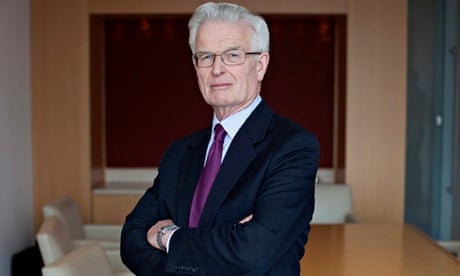Top executives from Royal Bank of Scotland on Tuesday defended the bailed-out bank from accusations that it deliberately forced customers into default to make a profit.
Derek Sach, head of the RBS global restructuring group which deals with companies facing collapse, insisted that the business he ran was not a profit centre, was not aggressive to its customers and had not threatened to remove overdrafts from small business customers.
Sach told MPs on the Treasury select committee: "Generally [I] do believe we do good overall."
He was facing questions about reports by the entrepreneur Lawrence Tomlinson, who has accused the bank of deliberately forcing customers into difficulty. He was also questioned about a report by former Bank of England deputy governor Sir Andrew Large, who said the GRG business was run as profit centre.
Sach, who peppered his answers with references to businesses that RBS had saved, such as Thomas Cook and Samsonsite, said the division generated income in fees from customers in distress but also incurred costs from running the operations.
Sach said the Tomlinson accusations had unsettled GRG staff, who felt they had "impugned their integrity".
RBS, under investigation by the Financial Conduct Authority following the accusations by Tomlinson, commissioned lawyers from Clifford Chance to investigate the claims, which cleared the bank of deliberately forcing businesses to the brink.
Sachs admitted that criticism from Clifford Chance regarding the lack of transparency about fees was a "reasonable criticism". He repeated the bank's promise to remove interest fees for the first 90 days when a customer defaults.
Under repeated questioning about GRG, deputy chief executive of RBS Chris Sullivan also denied the division operated as a profit centre.
Sachs said that West Register, the controversial arm of RBS set up to buy properties from its customers, which the bank has now promised to shut, had bought 160 properties from small business customers for £450m and on which loans of £1bn had been extended.
Sachs repeatedly insisted the bank did not take a tough stance towards its customers and said there had been conflict with the now disbanded asset protection agency, set up by the government to insure RBS's more troublesome assets in 2010, which had wanted it to be tougher with its customers.
The RBS pair appeared after MPs questioned executives from Clydesdale and Yorkshire Bank about their sale of complex loans, such as interest rate swaps, to small businesses. David Thorburn, chief executive of the arm of National Australia Bank, said he regretted the sale of such products to some customers.
Thorburn said some staff overstepped the mark when selling a certain type of loan.
He also conceded that some customers had not understood the costs of the break clauses attached to some loans – which could reach 25% of the value of the loan – and that the costs had risen because interest rates had sunk so quickly to 0.5%.
Debbie Crosbie, director of customer trust and confidence – a job title which Conservative MP Brooks Newmark said could have come from the BBC comedy show W1A – was also questioned. She said that 8,300 fixed loans had been sold and 550 complaints received from customers. Around 300 of them are likely to be upheld.
She admitted there could be more than 550 receiving compensation from a review that only began at the start of the year. "Nobody anticipated what would happen to break costs when they came down to emergency rates they are at today," said Thorburn.
